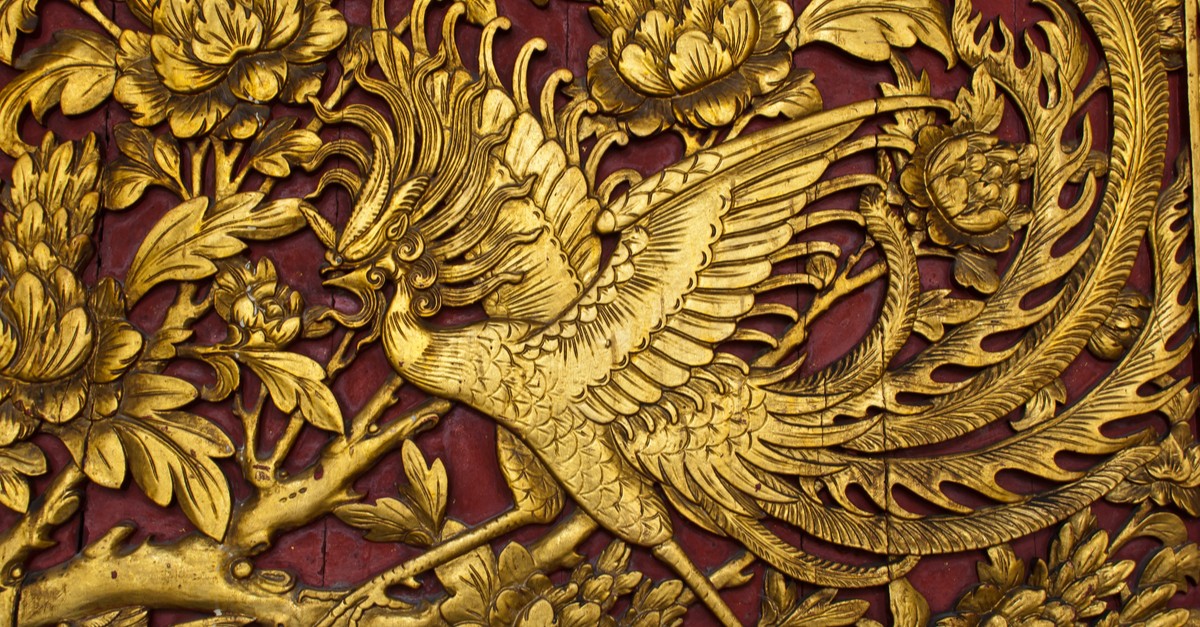The Golden Bird: How India Is Regaining Its Title In The Eyes Of Global World Leaders Thanks To ‘The Maharaja’ And The Ever-Sweetening Market For Foreign Investors
From France United Kingdom to the United States, perhaps it has never happened before that world leaders have openly written a thank you note expressing their gratitude for a business deal done; the Air India-Boeing-Airbus deal has opened a new chapter for India's trade relations with these three countries. At the same time, it has also catapulted India into the competitive aviation market. In return, it will mark the comeback of the 'Maharaja of the Sky' and perhaps the beginning of the adage, India - the golden bird!

The Golden Bird And The Maharaja
When one thinks of the Tata Group, the one thing that comes to mind is value yet opulence, which is precisely what the Maharaja has done; it has, with one stroke through the Air India-Boeing-Airbus deal, opened a new chapter for itself and India.
On February 13, Tata Group’s Air India announced that it was purchasing 470 passenger aircraft from two of the world’s biggest giants – American Boeing and the French Airbus.
The importance of the deal becomes apparent with the fact that all three leaders – Emmanuel Macron, Joe Biden and Rishi Sunak made congratulatory statements outlining the significance of this deal for their respective countries.
:max_bytes(150000):strip_icc()/Boeing_and_Air_India-1dbc11c214d148769d84859d0516f226.jpg)
The fact that recession concerns have slowed the economies of western countries significantly, Air India’s purchase will boost the economies while providing employment opportunities for hundreds across the three countries.
Therefore, it is not surprising that it is being considered ‘the mother of all aviation deals’ and has set a tone for the ‘deepening of partnerships,’ between three global players and India.
How Air India’s Deal Has Put India On The Global Aviation Map?
Air India, which the Tata Group now owns, plans to become “a world-class propostion”, and thus the record deal for 470 planes from Boeing and Airbus will make this dream true by the way the contract has happened.
Further, it would enable the modernization of Air India’s fleet and help it expand its network exponentially; acquired two years ago by the Tata Group, it has mostly retired its older aircraft and has launched a five-year plan to get newer planes.
The sheer magnitude of the deal demonstrates how the Tata Group always intends to ‘aim for the best’ not only for its patrons but the country. Through Air India, it plans to not only reclaim its glory in India’s crowded but substandard aviation market while edging on and gaining its position amongst the international aviation majors.
These orders bring Air India’s fleet at par with Lufthansa and Singapore Airlines – all part of Star Alliance, the world’s largest global airline alliance and perhaps to challenge the dominance of Gulf carriers, for whom Star Alliance has been a significant competitor.
Is India At The Cusp Of Regaining Its ‘Golden Bird’ Title?
India has slowly but steadily been making inroads on the global stage – from business to finance to diplomatic wins; the country has never seen such success as it does today.
Today, India is compelling not only the world leaders to stand up and take notice but also the competitive world of business and finance; it has chosen India for its many merits and has invested heavily here.
So much so that during the World Government Summit 2023 in Dubai, American billionaire Ray Dalio stated that India would have the biggest and fastest growth rate and that the country is well on its way to seeing the biggest transformation among the rest of the countries of the world.
One of the reasons for the same, he attributed to the fact that, unlike the U.S. and China, who are engaged in power conflicts, India being a ‘neutral country’, will be able to rise higher up in ranks in terms of growth in the coming years.
So far, India has recorded a growth of 9.7 per cent in the first half of 2022-23 (April-September), as compared to 5.6 per cent in Indonesia, 3.4 per cent in the U.K., 3.3 per cent in Mexico, 3.2 per cent in the Euro area, 2.5 per cent in France, 2.2 per cent in China, 1.8 per cent in the USA and 1.7 per cent in Japan.
These projections definitely point to the assertion that India is an actual bright spot in the midst of a global downturn.

The same was collaborated during the 2023′s World Economic Forum in Davos, which was dominated by discussions of economic growth or a lack of it in most developed countries; however, everyone agreed to one nation that was cited as a bright spot – India!
Bank of Japan Governor Haruhiko Kuroda, in a closing panel at the event, said India is doing “exceedingly well”. While highlighting acute challenges facing its neighbours Sri Lanka, Bangladesh and Pakistan.
Currently, India shines out even among the world’s biggest economies, with Europe hovering on the brink of potential recession and slowing U.S. growth.
And while the International Monetary Fund forecasts China outpacing global growth once more in 2023 as the country reopens, its forecast of a 4.4% rise in GDP is well below its estimate for India at 6.1%.
The Centre for Economics and Business Research thinks India could speed past Germany and Japan to become the world’s third-largest economy over the next decade, hitting $10 trillion by 2035.
Several executives of non-Indian companies at the WEF summit, including Nokia’s CEO Pekka Lundmark, highlighted India as one of their fastest-growing markets, and so did Ericsson’s head, Börje Ekholm, who said 5G infrastructure was rapidly developing in India, while Europe is falling behind on 5G, he noted.
India also has ambitions of becoming a global chipmaking hub as concerns grow about the West’s reliance on Taiwan. According to India’s commerce minister, Apple wants to move 25% of its iPhone manufacturing to the country (though Apple has not confirmed this).
India is already a world leader in digital payments; and is looking to develop in areas including solar, wind and green hydrogen production.
Conclusion: So, what is fuelling India’s growth story?
It is the combination of a stable political environment and significant government investments in infrastructure that are providing a positive environment for growth.
Furthermore, India has managed to largely be unaffected by the global tailwinds that have impacted the economies of most developed nations.
The Air India deal is just another strike in India’s favour; with that, the ‘maharaja of the sky’ and the ‘golden bird’ can take a fabulous flight together!





